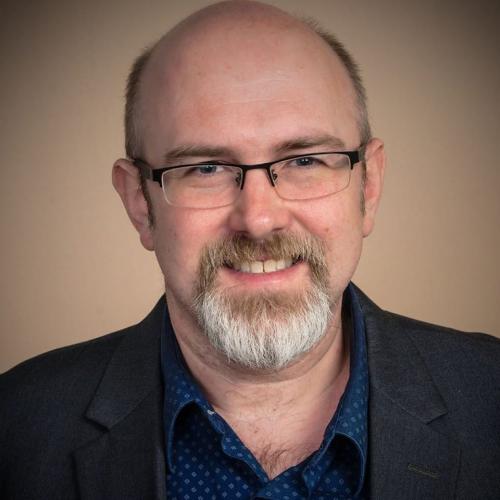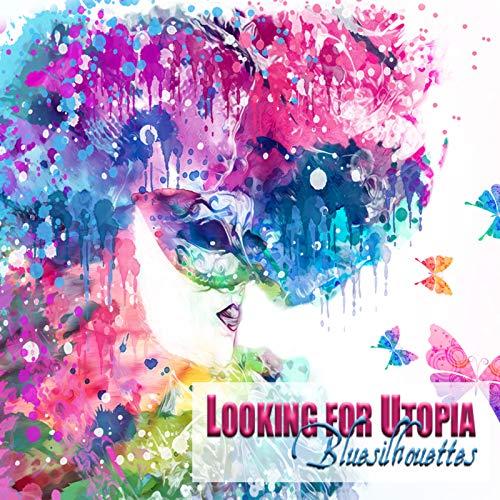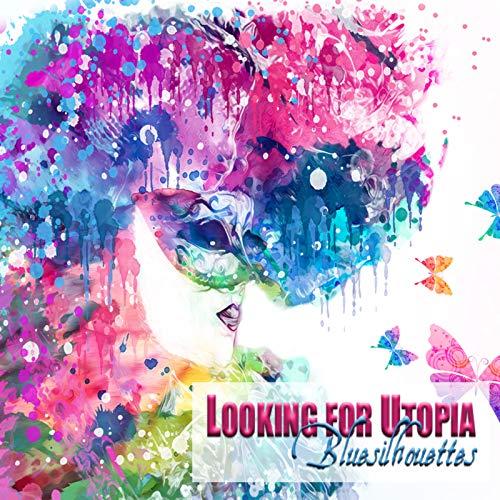David Peoples
Flowery Branch, Georgia, UNITED STATES Official WebsiteFacebookTwitterYouTube
Official WebsiteFacebookTwitterYouTubeDavid R. Peoples is a composer, performer, recording artist, poet, and music professor who has worked largely within the realms of traditional, experimental, jazz, and rock. Music has well and truly been David’s life work. He has a novel-worth of accolades and accomplishments, but he began simply figuring out interesting melodies and playing them on the piano – and then the horn, trumpet, and organ. By age 15, David had written his first award-winning composition for symphonic orchestra. Among other things, David’s toured extensively; lived, studied, and performed in Los Angeles, Austin, Memphis, and Atlanta (his current residence, at the foot of the Appalachian Mountains); won numerous national and international awards for composition; had his music premiered throughout North and Central America, Europe, and Asia; and heard one of his orchestral compositions performed at the Imagine Music Festival.
Dr. Peoples is currently a music professor at the University of North Georgia and is the founder of the Research on Contempory Music Conference (ROCC). ROCC has brought in performers and researchers from around the world to Georgia. He studied composition with renowned composers Kamran Ince, Jack Cooper, Jim Richens, John Mills, and Charles Richard.
David writes with a ginger ale in hand on a balcony surrounded by forest. It’s from here, surrounded by nature, that all of his music begins – before being released into and around the world.
Albums

Looking for Utopia
2019, New Age, World, Jazz, Electrophonic, Neo Classical
ReviewSpotifyAppleMusicAmazon

All Appears Real, Though a Dream
2017, Neo Classical, Keyboards, Organ, Piano, New Age
SpotifyAppleMusicAmazon
“Looking for Utopia” reviewed by Pam Asberry

David Peoples is a composer, performer, recording artist and music professor. His latest album, “Looking for Utopia,” is a departure from his previous work, which is best described as traditional, experimental, or jazzy. Here, the piano is the centerpiece but the album is truly a collaborative effort. Through the miracle of technology, Atlanta-based Peoples recorded the piano tracks locally and sent the digital files to South African slide flutist Carina Bruwer and Berlin cellist Natasha Jaffe, who recorded their remarkable additions in their respective countries.
This album truly defies categorization; it is a distinctive blend of jazz, world and New Age styles. In David’s own words, “I am unique. I tell a story. I write narrative poetry in free verse using musical notes.” In this case, the music tells the story of a search for utopia and the amazing discoveries made along the way.
The powerful opening track, “The Valley of Hidden Treasures,” is followed by “Peach Blossom Spring,” a light, jazzy, toe-tapping number as sultry as a spring day in Georgia. The delicate “Moondreams on Crystal Roses” is more ambient in nature; “Dance of the Flickering Fire” is rhythmic and hypnotic. The title track, “Looking for Utopia” opens with a romantic piano solo that is interrupted by a tumultuous instrumental section that builds to a wondrous climax before returning to a reprise of the piano solo and then a gentler, more mysterious version of the instrumental section. “City of Golden Lights” opens with a beautiful flute solo accompanied by the piano; parts of this piece feel quite jazzy but just as quickly the music takes off in a completely different direction, reminding me of how quickly neighborhoods change within even a few blocks of each other in large cities such as Paris (nicknamed the “city of lights”).
The unusual “Crystal Skies,” mostly a collaboration between cello and vibes, has a very “world” feel. Somber and reflective, “Solitariety” explores the dark lower registers of the piano with occasional flashes of light in the upper register. This is some amazing solo piano work! “Glass Flower City,” another delightful collaboration featuring the piano and the cello, is somewhat Asian in feel, while “Glass Butterflies” is more primitive in nature, a musical depiction of the flittering of the colorful insects’ wings. “Hidden City at Crying Rock” is alternately gentle and intense; the closing track, “Take Me to Elysian Fields” (originally the paradise to which heroes on whom the gods conferred immortality were sent) combines ambient sounds with a soaring improvisatory piano track and brings the album to a thoughtful conclusion.
With “Looking for Utopia,” David Peoples makes an impressive entrance into the world of “mainstream” music. If you are looking for a listening experience unlike any other, you don’t want to miss this one. Recommended!
